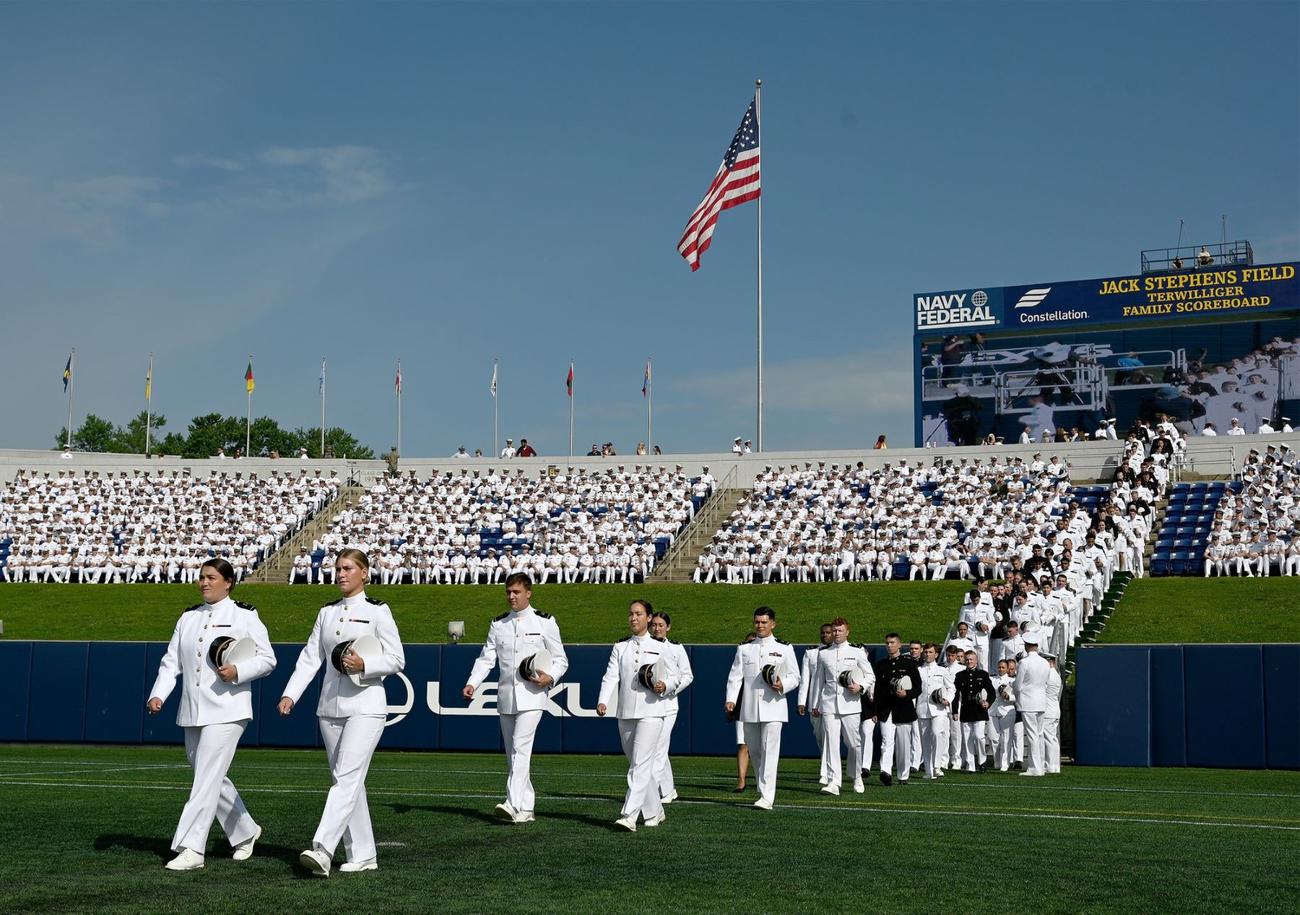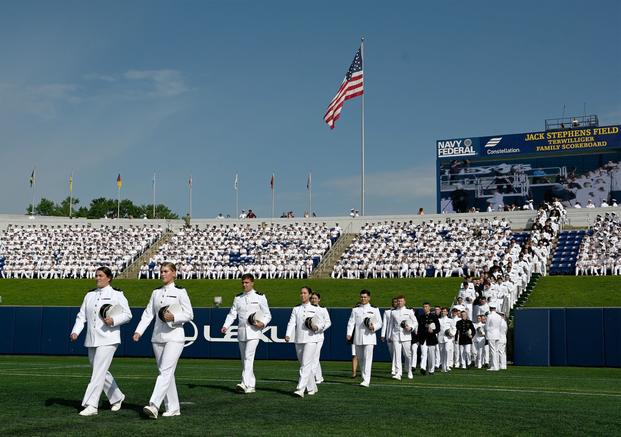

Whether the U.S. Naval Academy’s interests in a more diverse student body are distinct enough to allow it to continue considering race and ethnicity in admissions is at issue in a trial that begins Monday in U.S. District Court in Baltimore.
A footnote in last year’s U.S. Supreme Court decision striking down the use of racial and ethnic preferences in college admissions noted that the ruling didn’t address military academies because of their “potentially distinct interests.”
The Annapolis-based academy was sued by the same group of activists, Students for Fair Admissions (SFFA), who had sued Harvard and the University of North Carolina, leading to the Supreme Court decision rejecting affirmative action in the college selection process.
The founder of the Virginia-based group, Edward Blum, declined to comment Friday, citing the upcoming trial. “Students for Fair Admissions looks forward to presenting our case to the district court,” said the longtime activist against affirmative action.
Shortly after its July 2023 victory at the Supreme Court, SFFA turned its attention to the military academies, first suing West Point in September and then the Naval Academy in October.
“The Supreme Court said military academies might be different,” University of Baltimore law professor Michael Meyerson said. “That’s really the bottom line.”
The footnote in the high court’s Harvard and North Carolina ruling noted a brief filed by federal officials contending that using race as a factor in admissions to the service academies furthered “compelling interests.” U.S. officials argued that the nation’s military strength and readiness required a “pipeline” of highly qualified and racially diverse officers to lead forces that themselves are diverse.
“Indeed, history teaches that racial diversity is a national security imperative,” Justice Sonia Sotomayor wrote in her dissent. She went on to note how during the Vietnam War, there were perceptions that racial and ethnic minorities were serving as “cannon fodder” for a white military leadership.
Meyerson, who specializes in constitutional law and American legal history, said the fact that the Supreme Court addressed the issue of the service academies in its rulings could signal that it may consider the military’s needs compelling enough to warrant an exemption from the ban on using race as a factor.
“Traditionally, the courts have given tremendous deference to the military when it says what it needs,” he said. “It is very possible the Supreme Court will uphold the use of race as one of the criteria for admissions.
“The fact that they left the door open may have meant that they intended for the door to stay open,” Meyerson said.
The case will be heard by U.S. District Judge Richard D. Bennett, whose official biography notes he served over 20 years in the U.S. Army Reserve and Maryland National Guard. That could figure into the case, Meyerson said, given that those with a military background “understand the importance of discipline and unity” within the leadership and ranks. He was appointed to the federal bench in 2003 by President George W. Bush.
In its lawsuit, SFFA argued that “instead of admitting midshipmen solely on leadership potential and objective metrics — the Academy stopped requiring applicants to submit standardized scores three years ago — the Academy focuses on race.”
The lawsuit seeks to have the academy’s admissions process declared a violation of the equal protection clause of the constitution and for a ban on using race as a factor in deciding who to admit.
In December, Bennett ruled against SFFA’s request for a preliminary injunction and allowed the Naval Academy to continue using race as part of its admissions process.
“Simply stated, it is unclear whether SFFA is likely to succeed on the merits at this stage,” he said in his ruling.
Bennett said he was “clearly guided” by the decision in the Harvard case, and noted that “great focus must be placed” on the footnote that “suggests that compelling government interests may justify affirmative action at military academies.”
He wrote that he was not convinced that SFFA “had met its burden in demonstrating that it is likely to succeed in showing that the Naval Academy’s consideration of race and ethnicity in admissions does not serve a compelling national security interest.”
©2024 Baltimore Sun. Visit baltimoresun.com. Distributed by Tribune Content Agency, LLC.
© Copyright 2024 The Baltimore Sun. All rights reserved. This material may not be published, broadcast, rewritten or redistributed.
